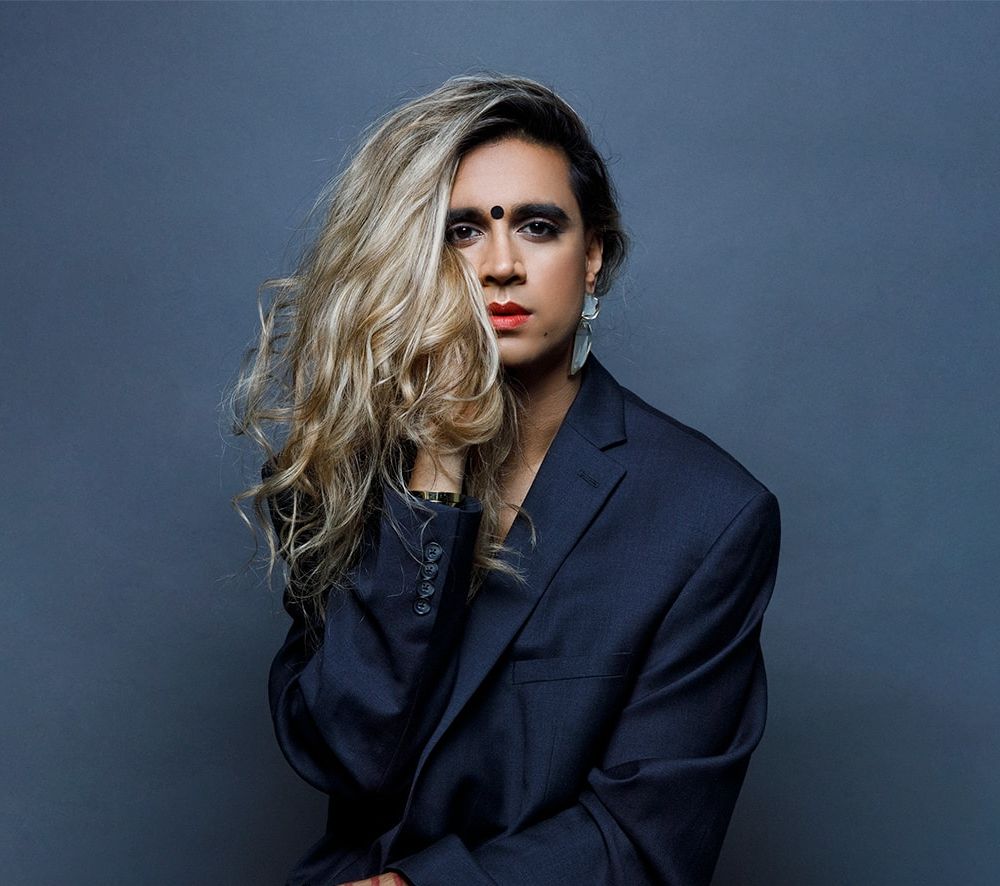Keynote Speeches
Having experienced and witnessed communities grapple with cancel culture, burnout, and inequality, Vivek Shraya continues to evolve her ideas of leadership to continue to take risks and apply the out-of-the-box thinking necessary for creating change and opportunity. In this presentation, Vivek will share personal stories on how she went from being a bullied teen to a leader in her communities, and the lessons and principles she picked up along the way. As someone who is actively involved in giving back and supporting her communities, Vivek will share the importance of caring for those around you and will inspire you to recognize the power we all have to create change.
The value of diversity & inclusion in the workplace is well established, but how has it changed the way we work? In this presentation, Vivek will help organizations reimagine what the workplace can look like when we proactively design practices and environments that make all team members feel safe and supported. After all, as one onboarding specialist shared with Vivek, “If we want to hire diverse people, we need to be able to support diverse needs.”
Inspired by her own experience as an educator, community leader, and safe space coordinator, Vivek shares meaningful and practical steps to help make your whole team feel safe and supported at work. Key takeaways include:
- Challenging bias during the hiring process
- Supporting trans & gender non-conforming staff
- Importance of clear policies and processes around anti-discrimination, anti-racism, sexual harassment prevention, etc.
Through art and storytelling, Vivek shares her relationship to mental health & how setting boundaries with herself and others has been an essential part of her self-care. Challenging the idea of “wellness” as a static destination, Vivek highlights connections with physical health, identity & oppression, and the importance of accepting an ongoing relationship & struggle with mental health.
With practical takeaways that audiences can apply in their own lives, Vivek shares how boundaries can have an essential role in caring for mental health. Whether it’s learning to say no more often, taking breaks from our online lives, or rethinking the “how are you” catch up with a friend, Vivek will illustrate how small changes can make a big impact on our mental health.
Queer and gender creative youth remain largely invisible in the classroom in both the curriculum and in the texts themselves. This often perpetuates feelings of isolation for queer youth. In this presentation, Vivek discusses her own experiences of invisibility in school as inspiration for creating art that features gender creative protagonists and the impact this work has had in the classroom. This will feature a reading from several of her acclaimed books including “The Boy & the Bindi” and “God Loves Hair.” This presentation will leave educators with informed perspectives on the necessity of queering their own classrooms.
As a response to the dominant narratives of tragedy and hardship associated with being queer, Vivek created a film called “What I LOVE about being QUEER” where participants share the reasons why they also celebrate their queerness. This presentation will feature a screening of this film and a broader discussion about the film’s genesis, with an emphasis on need for conversations about queer celebration in the face of ongoing homophobia and transphobia. The presentation will be followed by an interactive component where queer audience members will be given an opportunity to be photographed and write down what they love about being queer, which will then become part of the ongoing multidisciplinary project.
Vivek is a multi-media artist known for her work on issues of gender, change, and identity.
Her value proposition lies in her willingness to share her experience, which she explores in her book & talks “How to Fail as a Popstar;” her debut theatrical work that is a reflection on the power of pop culture, dreams, disappointments, and self-determination. It’s an honest and hopeful depiction of the search to find one’s authentic voice. It will also be available as a new series on CBC GEM Fall 2023!
For a corporate leadership audience, Shraya’s insights on failure can be valuable in encouraging innovation and risk-taking within an organization.
Key insights:
- Embrace failure as a natural part of the creative process: failure is inevitable for anyone pursuing a creative endeavor, and encourages individuals and organizations to view failure as an opportunity for growth and learning. Keep showing up!
- Adopt a zen approach to fear and failure: take those feelings of disappointment and honour them, instead of trying to look on the bright side, or use failure as a stepping stone to other things. And learn to life with fear: rather than worrying about conquering fear, recognize that living requires learning to co-exist with it.
- Empower employees to take risks: create a culture that empowers employees to take risks, experiment, and innovate. By recognizing and rewarding effort and experimentation, rather than just success, leaders can foster a more innovative and creative workplace.
An opportunity to ask Vivek anything, she will share from her experience as a multidisciplinary artist for over 20 years, and as brown, queer, trans person of colour. From college to corporate audiences, Vivek shares experiences that will impact any group on themes of allyship/coming out, developing your creative practice, navigating arts industries, creating inclusive communities and workplaces & more.
Often the most popular part of any of her events, Vivek delivers raw and honest answers to questions like:
- How do we make our workplace more inclusive?
- How can we celebrate and support diversity in our workplace in an authentic way (and that is not just tokenizing)?
- How can I be a better ally?
- What does community mean for you?
- How do you manage fear?
- How have you managed failing in your work?
- How did you come out to your parents/family?
- How do you support someone who is coming out?
- How did you get published?
- How do you organize your schedule to do multiple jobs / tasks









Similar
Speakers